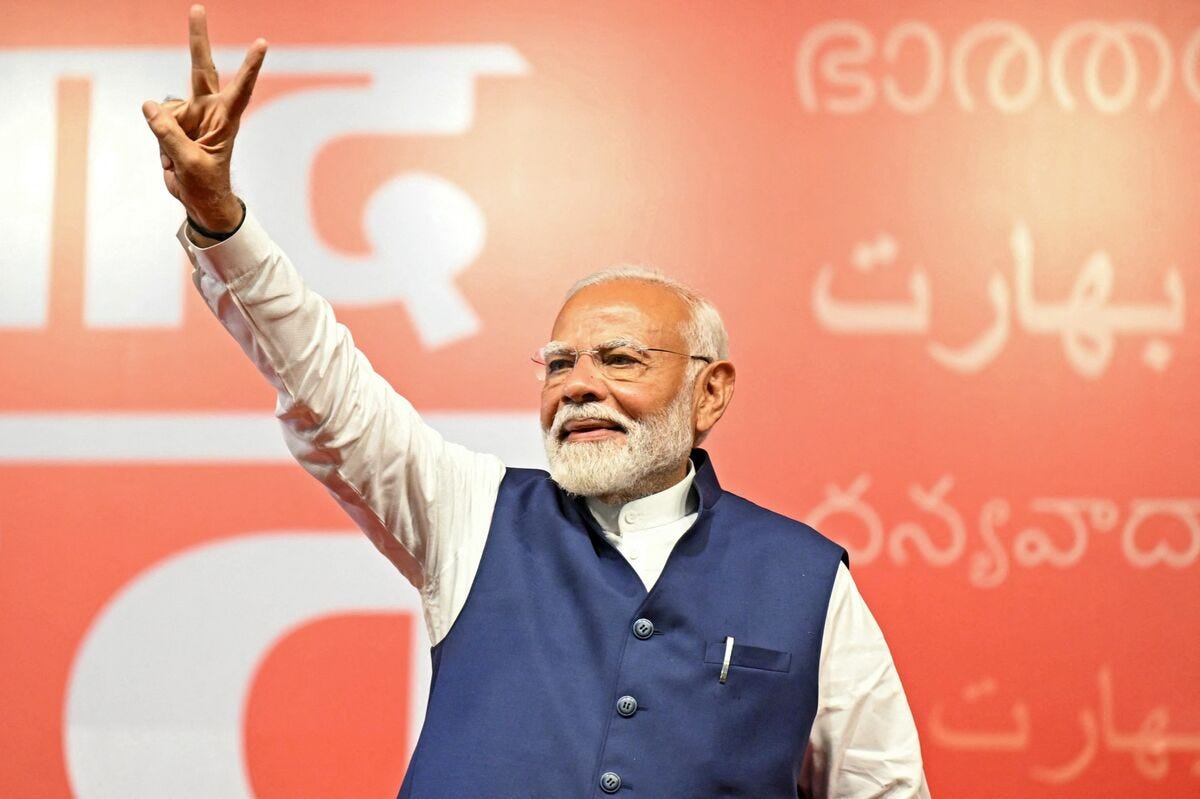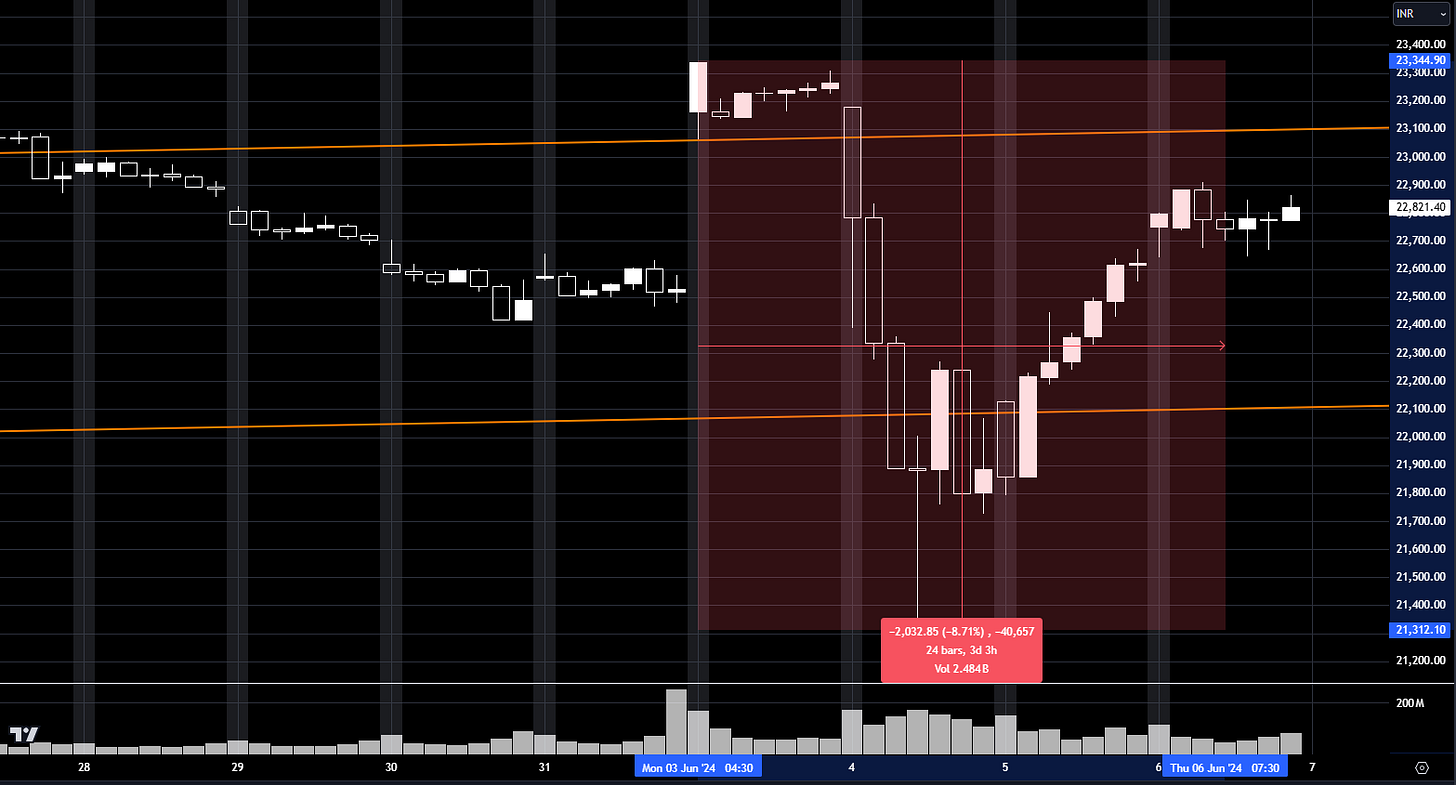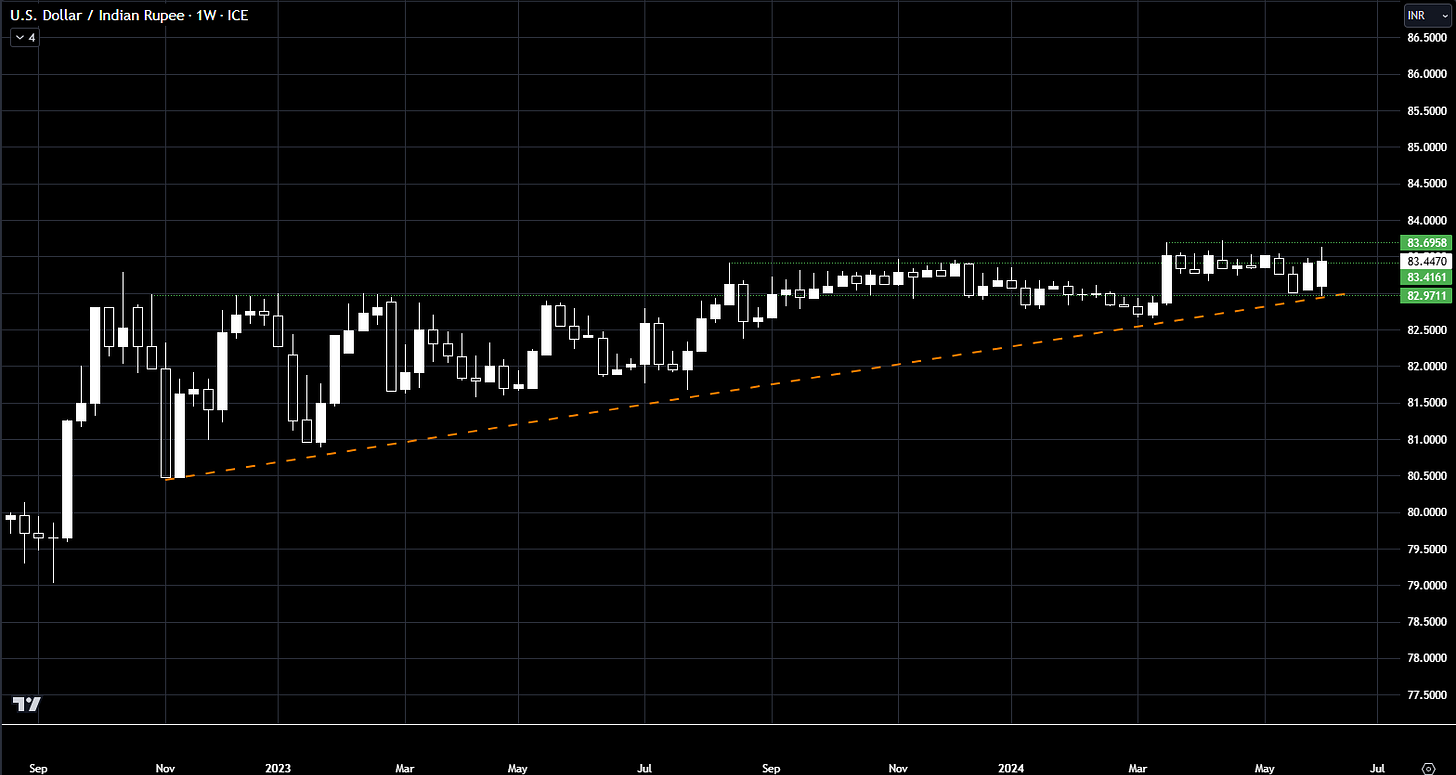Trading A Wild Week Of Elections
The lowdown from India, Mexico and South Africa.
This week has been a rather crazy one for EM markets with some rather unexpected results in national elections. As the respective markets still try and digest what the results mean for the governing parties going forward, we feel there’s some opportunities to be had in this space.
Today we run through the results, implications and trade ideas coming from the elections from South Africa, Mexico and India.
As a friendly reminder, you can become a premium subscriber with us for just £10 a month. This provides you full access to our weekly articles without a paywall, including our flagship Monday trade ideas and access to what we are buying and selling in our Global Asset Portfolio.
India
Let’s begin with India. Narendra Modi managed to secure a third term as PM this week, but in much less glamorous style than previously.
Modi became the Prime Minister back in May 2014 after leading the Bharatiya Janata Party (BJP) to a historic victory in the general elections. The BJP, founded in 1980, is a right-wing political party with close ties to the Rashtriya Swayamsevak Sangh (RSS), a Hindu nationalist organization.
At the last general election in 2019, Modi recorded a decisive victory. The BJP secured 303 seats out of 543 in the Lok Sabha, increasing its tally from the previous election and achieving the largest single-party majority since 1989.
Interestingly, voter turnout was at a historic high of 67.40%, with over 911 million registered voters participating.
When we contrast the 2019 election to the one this year, with the results being confirmed earlier this week, there was a large shift.
The BJP and its coalition, the National Democratic Alliance (NDA) secured 292 out of 543 seats in the Lok Sabha, with the BJP alone winning 240 seats, falling short of an outright majority. This marked a decrease from their previous performance (e.g in the 2019 election mentioned above).
The opposition coalition, the Indian National Developmental Inclusive Alliance (INDIA), led by the Indian National Congress (INC), won 234 seats, with the INC itself securing 99 seats, thereby increasing its representation compared to the last election.
Modi is currently trying to secure a working Government, but naturally the demand of the smaller parties means that negotiations in order to get support are tough. Media reports that the plan is to push back his inauguration for a third term as PM until Sunday while the talks continue,
Below shows the breakdown, and note the fact that the majority line (which was met in 2019) now is short:
Market reaction and implications
We saw an initial drop in the Nifty 50 index, with a drawdown of just under 9%:
However, we note that the dip was quickly bought, with it now trading virtually unchanged to where it was a week ago. In the short-term, we feel this makes sense. The surprise of a lack of majority was reversed by the fact that Modi still has the bulk of the support to continue in power.
Going forward, we’re actually slightly cautious here going forward. The fact Modi has to join forces with some that aren’t fans of his could mean a stalemate in terms of getting manifesto pledges done and driving forward economic growth over the next couple of years. We feel this will likely scare off international investors.
Even though the Nifty 50 could keep moving higher, our concern is more the fact that international investors buying INR will see real returns eroded by a devaluating currency.
The rupee has weakened this week and provides us with a cleaner view (in our opinion) on where the sentiment is. The ‘lines in the sand’ over the past year of 83.00 and circa 84.50 have eventually been broken, while the trendline has caught any brief selloffs:
Therefore, we like to express our view on India right now not from the equity space (which we think could actually rise), but rather by being long USD/INR.
TRADE IDEA - LONG USD/INR
Entry: 83.45
Stop Loss: 82.75
Take Profit: 85.00
Mexico
Claudia Sheinbaum of the Morena party won the Mexican presidency with a historic landslide victory, securing the highest number of votes ever recorded in Mexican electoral history.
Sheinbaum, who previously served as the mayor of Mexico City, will be the first woman and the first person of Jewish heritage to hold the office of President in Mexico.
The polls heading into the election showed things being much closer, however the actual figures showed a large victory over her nearest rival:
However, markets didn’t take things well when the result came through. There’s worry about perpetuating some of the parties more controversial practices, such as centralizing power and undermining independent institutions.
“The result opens a scenario of greater political risk and uncertainty for [business],” said political risk firm Integralia. “The threats to Mexico’s system of checks and balances are greater.”
Aside from this, her campaign (and the election in general) was marred by the level of political violence. Reuters reported last week that “Mexico's election is now the bloodiest in its modern history after a candidate running for local office in central Puebla state was murdered on Friday at a political rally, taking the number of assassinated candidates to 37 ahead of Sunday's vote.”
Market reaction and implications
The reaction across assets was sharp. iShares MSCI Mexico ETF closed 10.7% lower (shown below). If you want a real headline stat: it was the worst day for Mexican stocks since the Covid-19 shock in 2020.
The Mexican Peso also felt the brunt of the pain, the below USDMXN chart doesn’t take a genius to figure out when the results came through:








